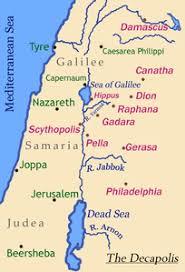
PHILODEMOS HO GADAREUS is an Epicurean philosopher. The term <philodemos> refers to the love of the people while Gadara is a location in Jordan which we know today as Umm Qais. He studies with Zenon ho Sidonio (Zeno of Sidon), in Athens, then moves to Rome and Herculaneum. Philodemos is also a poet. In fact he is famous mainly for his poetry in the “Greek Anthology“. Nevertheless in the 18th century some of his writings emerge in the Villa of the Papyri of Herculaneum. These works include writings on ethics, theology, rhetoric, music, poetry and the history of some philosophical schools.
Philodemus doubts the value of inductive reasoning. He does not like the extension to a general level of what is observed in several cases. This doubt arises from noticing all the unique things and events that unexpectedly exceed regularity. He says that “there are in our experience some infrequent occurrences. For example the man in Alexandria half a cubit high, with a colossal head that could be beaten with a hammer. Another instance is the person in Epidaurus who was married as a young woman and then became a man”.
He rejects induction because it goes far beyond our experience. He says that “we should not use inferences. For example we cannot say that since men among us are mortal then men in Libya would also be mortal. Much less we can say that since living beings among us are mortal, if there are living beings in Britain, they would also be mortal”.